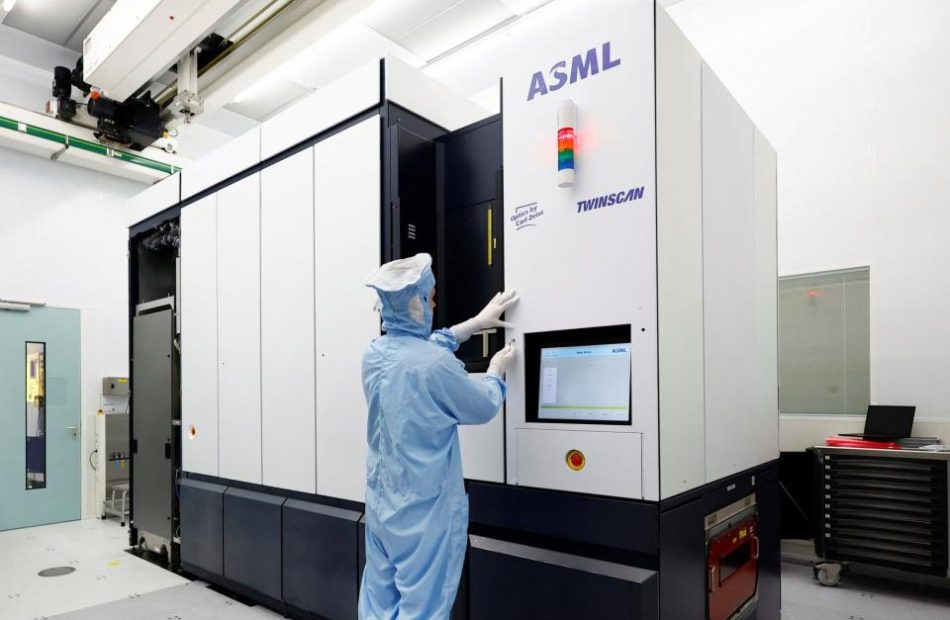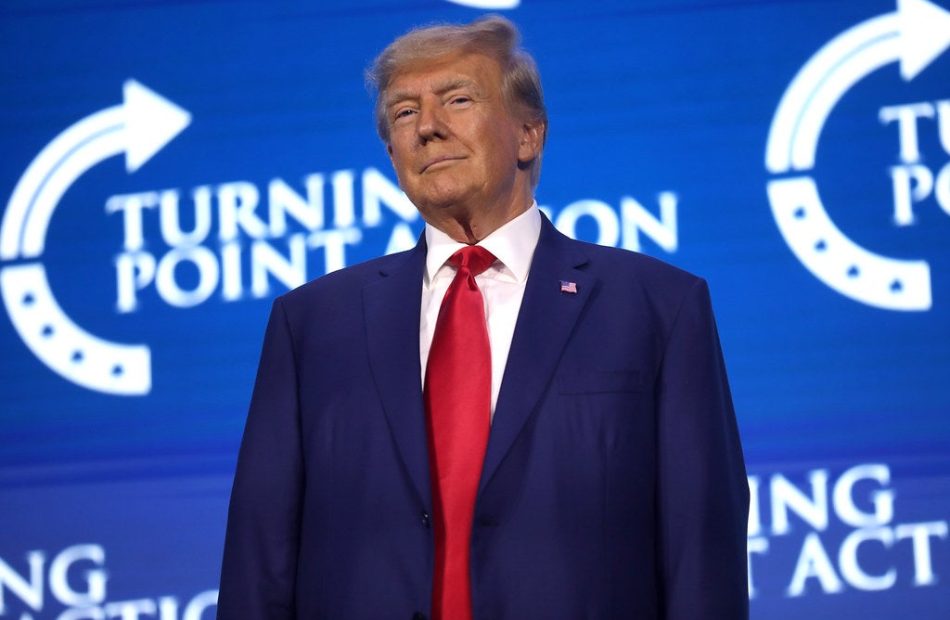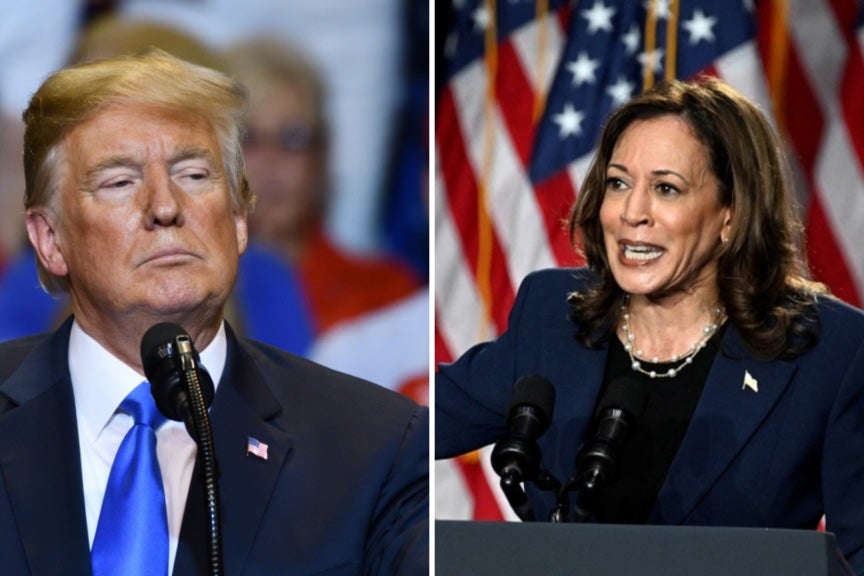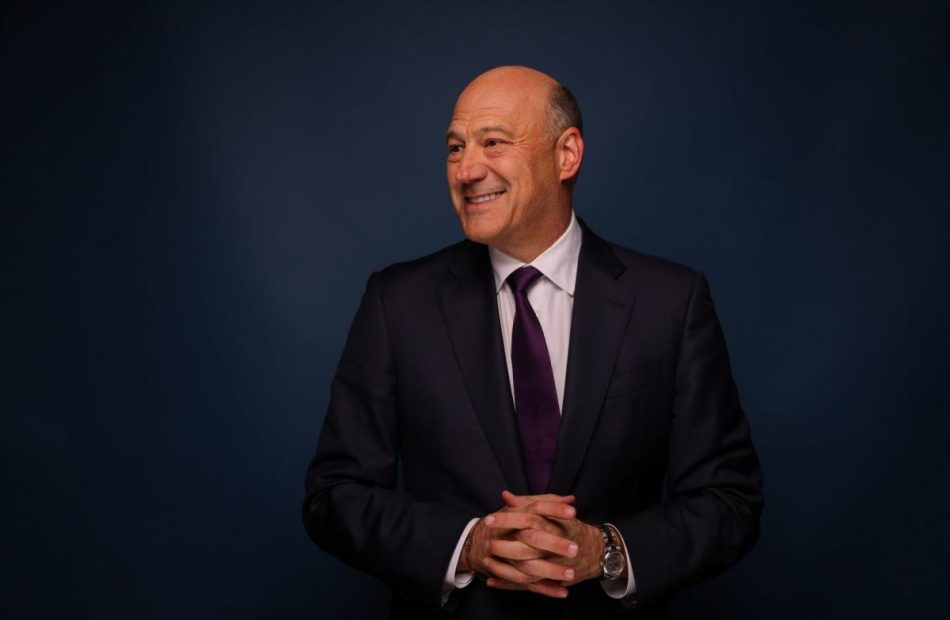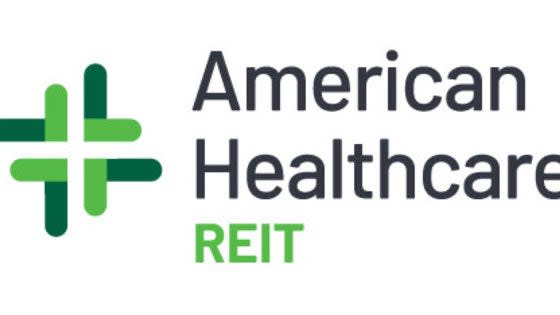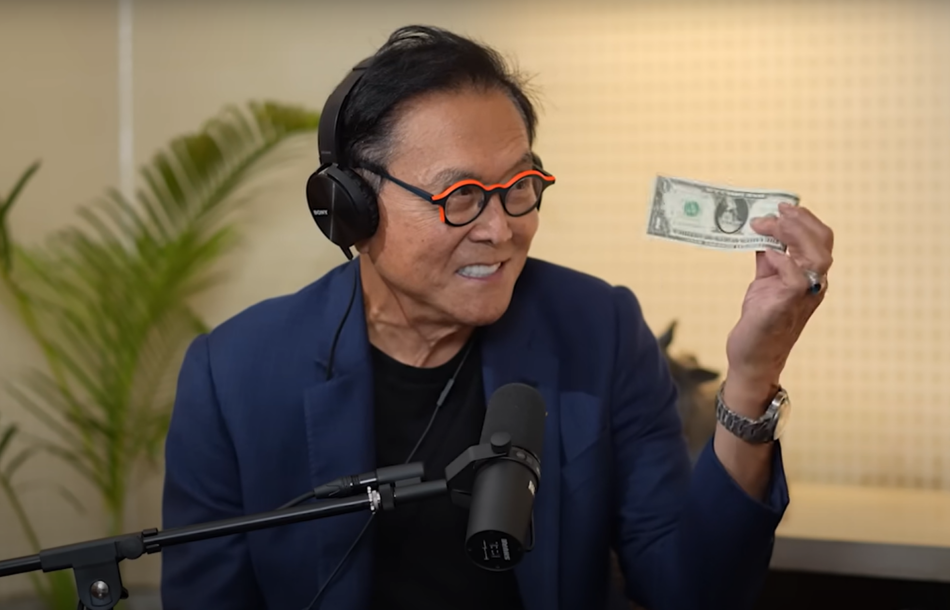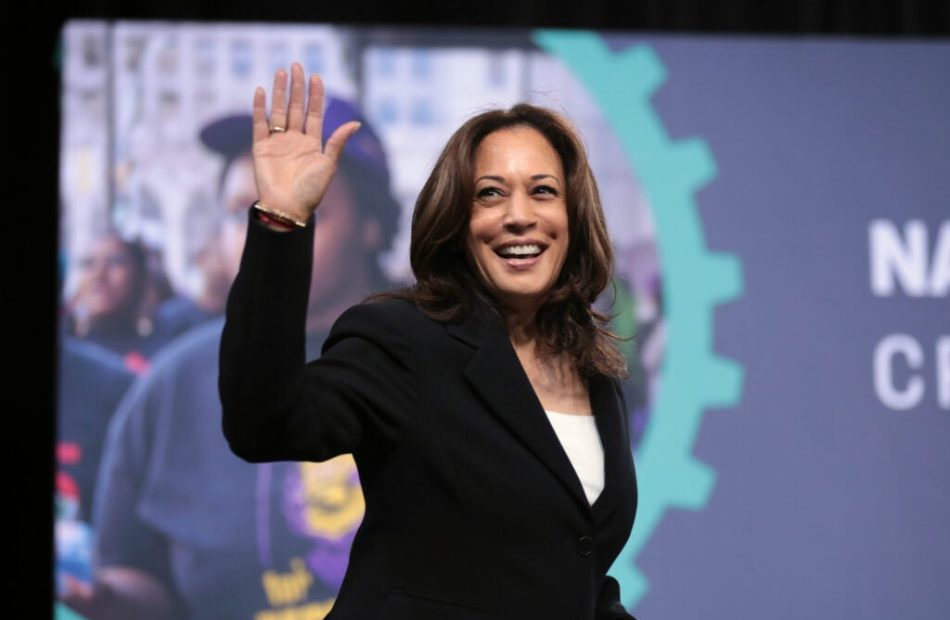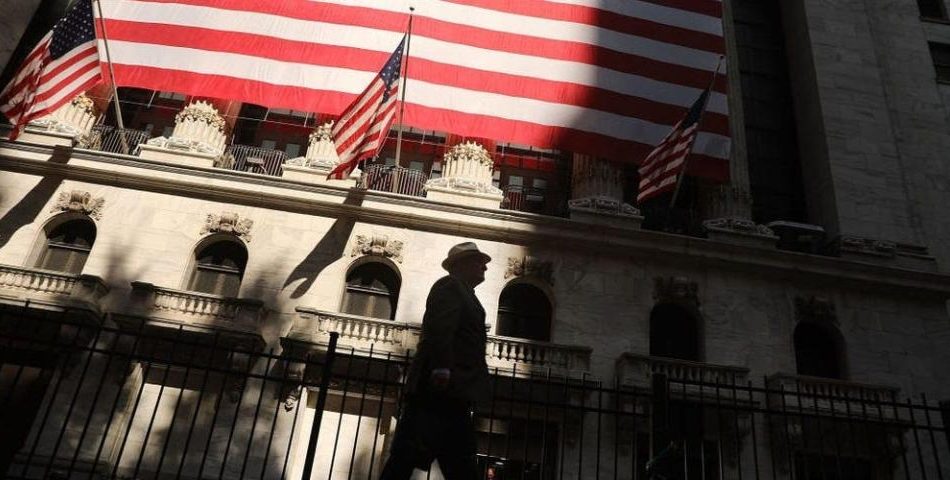China touts home-grown chip lithography machines amid semiconductor self-sufficiency drive
The Chinese government is promoting two domestically made chip-making machines that it says have achieved significant advances, as the country strives towards technology self-sufficiency amid US sanctions.
The lithography machines, which print highly complex circuit patterns onto silicon wafers, “have achieved significant technological breakthroughs, own intellectual property rights but have yet to perform on the market”, according to the Ministry of Industry and Information Technology (MIIT), which did not name the companies behind the two machines.
One of the deep ultraviolet (DUV) lithography machines operates at a wavelength of 193 nanometres (nm), with a resolution below 65nm and an overlay accuracy below 8nm, according to a new list of “major technological equipment” published by the MIIT earlier this week. The other DUV machine has a wavelength of 248nm, with 110nm resolution and 25nm overlay accuracy, according to the list.
Do you have questions about the biggest topics and trends from around the world? Get the answers with SCMP Knowledge, our new platform of curated content with explainers, FAQs, analyses and infographics brought to you by our award-winning team.
The two machines are still far behind the most advanced options available on the market. One of Dutch equipment maker ASML Holding’s most advanced DUV machines, for instance, can operate at a resolution of below 38nm with an overlay accuracy of 1.3nm.
DUV machines also lag behind extreme ultraviolet (EUV) machines, which use light with a wavelength of just 13.5nm – almost 14 times sharper than DUV’s 195nm.
China has spent years pursuing technology self-sufficiency in semiconductors, but its progress in producing the lithography systems required to reliably mass produce advanced chips remains slow.
An engineer works on a deep-ultraviolet lithography system at ASML in Veldhoven, Netherlands, on June 16, 2023. Photo: Reuters alt=An engineer works on a deep-ultraviolet lithography system at ASML in Veldhoven, Netherlands, on June 16, 2023. Photo: Reuters>
Nearly all of the country’s lithography machines still come from the ASML, which has already cut off Chinese clients’ access to its cutting-edge EUV machines and is facing increased pressure from the US to withhold its DUV machines from China-based customers.
State-owned enterprise Shanghai Micro Electronics Equipment Group (SMEE), the country’s best hope to develop its own advanced lithography systems, still lags far behind its global peers such as ASML. The company, which was added to a trade blacklist by the US in December 2022, would need breakthroughs across multiple technologies and supplier networks to overcome restrictions, according to experts.
But SMEE has made some progress despite sanctions. The company in March last year filed a patent for “EUV radiation generators and lithography equipment”, according to corporate registry data published earlier this week.
This article originally appeared in the South China Morning Post (SCMP), the most authoritative voice reporting on China and Asia for more than a century. For more SCMP stories, please explore the SCMP app or visit the SCMP’s Facebook and Twitter pages. Copyright © 2024 South China Morning Post Publishers Ltd. All rights reserved.
Copyright (c) 2024. South China Morning Post Publishers Ltd. All rights reserved.
Trump Stumbles Again Over Health Care Issues Involving Abortion And Obamacare
In his recent debate with Vice President Kamala Harris, former President Donald Trump‘s stance on key health care issues, including the Affordable Care Act (ACA) and abortion, came under intense scrutiny. His responses, often vague and contradictory, highlighted his ongoing struggle with these critical topics.
What Happened: Trump’s handling of the ACA, also known as ObamaCare, and his inconsistent positions on abortion were brought into sharp focus during the debate.
Trump remained noncommittal about his plans for both subjects, leading Republican strategist Chuck Coughlin to comment that Trump “absolutely stepped on every possible land mine in both of those.”
According to the report by The Hill, On the subject of ObamaCare, Trump hinted at a potential attempt to repeal the law again but did not commit to having a replacement plan. He criticized the law as “lousy,” but reluctantly pledged to manage it “as good as it can be run” until a better and cheaper option is available.
Trump’s lack of a concrete plan to replace ObamaCare if repealed was also exposed during the debate. “I have concepts of a plan. I’m not president right now,” Trump said.
Also Read: Trump Vs Harris: New Poll Reveals Post-Debate Swing Towards This Candidate In Key State
Coughlin found Trump’s comments revealing, stating, “I think it spoke to the reason McCain gave the thumbs down is they never had an alternative plan.”
Trump’s shifting positions on abortion were also on display during the debate. He avoided committing to vetoing a national abortion ban and made several false claims about Democrats’ stance on abortion.
Read Also
Why It Matters: These issues are crucial in the upcoming election, with Democrats focusing on health care and polls indicating voters’ interest in plans to lower health costs.
Trump’s inconsistent positions on these issues could potentially impact his campaign. The debate has brought these topics to the forefront, and the public will be watching closely to see how Trump’s positions evolve in the lead up to the election.
Read Next
Trump Vs Harris: New Polls Reveal This Candidate Is Outperforming In Swing States
This content was partially produced with the help of Benzinga Neuro and was reviewed and published by Benzinga editors.
Market News and Data brought to you by Benzinga APIs
© 2024 Benzinga.com. Benzinga does not provide investment advice. All rights reserved.
Trump Vs. Harris: Vice President's Strong Debate Showing, Taylor Swift Endorsement Do Not Move Needle On Her Poll Numbers As Pollster Cites This Reason
The presidential debate held last week did little to alter the equation between Republican candidate Donald Trump and his Democratic rival Kamala Harris, new poll results published on Sunday showed.
The Head-to-Head Tally: Harris received 51% support among registered voters compared to 47% support for Trump, the poll conducted by ABC News, who hosted the debate, along with Ipsos showed. The former’s slight lead is statistically unchanged from the previous ABC/Ipsos poll conducted before the debate.
The survey was conducted between Sept. 11-13 and 3,276 adults were surveyed for the purpose.
Among likely voters, the tally was 52%-46% in favor of Harris, unchanged from the numbers seen before the debate.
The share of Harris supporters who strongly backed her was 62%, while Trump supporters who strongly backed him was at 56%, down from 60% at the end of August.
The survey found that Taylor Swift’s endorsement had little impact. Merely 6% said the popular singer-songwriter’s endorsement of Harris makes them more likely to vote for her. While 13% said it makes them less likely to support her, 81% saying it makes no difference.
Debate Performance: Harris won hands down, according to the respondents, with 58% picking her as the winner and 36% opining that Trump won. Thirty-seven of the respondents said the debate made them think more favorably about the vice president, more than double that of the 17% who felt the same about Trump. Thirty percent of the respondents said the debate made them feel less favorably about the former president.
The benefit for Harris came from her voter base, as 60% of the Democratic and Democratic-leaning independent voters said the debate made them feel more favorably toward her. On the other hand, only 34% of the Republican and Republican-leaning independent voters said the debate made them see Trump more favorably.
“The absence of movement in vote preferences, despite a 22-point tilt to Harris as having won the debate, marks the sharply polarized nature of the electorate,” the pollster said. “Almost everyone has a preference between Harris or Trump, and among those who do, few say they’d even consider the other,” it added.
Among demographics, Harris led Trump among women, while among men, both were neck-on-neck. She had a 13-point lead over Trump among registered voters in the 18-29 years age category and a stronger 19-point lead among likely voters. The vice president’s good showing in this category is primarily attributable to strong support among women in this age group.
Harris had a thumping 81% support among Black registered voters and 89% support among likely voters in this racial group. She also led among Hispanic voters, with 7% support, while among white registered voters, she trailed by a 43%-54% margin.
Voter Issues: The economy and inflation continue to dominate as the top issues in the election, and Trump led Harris by seven points in voter trust in his ability to handle both. He had a 10-point lead over Harris in voter trust to handle immigration.
On the other hand, Harris had a seven-point lead on “protecting American democracy” and a 9-point lead on handling health care. The two remain evenly matched on crime and safety.
Check This Out:
Market News and Data brought to you by Benzinga APIs
© 2024 Benzinga.com. Benzinga does not provide investment advice. All rights reserved.
Starbucks' New Superstar CEO Just Released His Plan to Fix the Business. Here's What Investors Need to Know.
On Aug. 13, coffee giant Starbucks (NASDAQ: SBUX) shocked the investing world when it named Brian Niccol as its new CEO. Niccol was formerly CEO at Chipotle Mexican Grill. And to lure him away, Starbucks was willing to absolutely break the bank. His total pay package is reportedly worth over $110 million.
With one of the largest pay packages on Wall Street, Niccol is now a superstar CEO. But Starbucks didn’t bring him in to maintain the status quo. On the contrary, the company is desperate to turn things around.
On Sept. 10, Niccol laid out a 100-day plan to start fixing things at Starbucks. And it all starts with its business in the U.S.
What’s the problem with Starbucks?
Niccol just wrote an open letter to all of Starbucks’ stakeholders, and he didn’t mince words. He said that in the chain’s U.S. coffee shops, “It can feel transactional, menus can feel overwhelming, product is inconsistent, the wait too long or the handoff too hectic.”
These observations — particularly the final one — aren’t necessarily new. In the second quarter of 2024, then-CEO Laxman Narasimhan said that some of Starbucks’ most loyal customers “sometimes chose not to complete their order, citing long wait times of product and availability.”
Former longtime Starbucks CEO Howard Schultz echoed Niccol’s thoughts in a social media post earlier this year. Schultz specifically used the term “transactional” to describe a feeling to be avoided, as did Niccol in his open letter. But Schultz would also approve of Niccol’s plan to start with the U.S. side of the business, since he said that “U.S. operations are the primary reason for the company’s fall from grace.”
In Starbucks’ North America segment (most of which is the U.S.), transactions have dropped during the last two quarters. This happens from time to time with a restaurant business. But in this case, the company believes the drop could have been avoided just by addressing things within its control. And that’s why it’s imperative to turn things around.
So what’s the plan now?
If this sounds like a small problem for Starbucks, I believe it’s fair to say that’s because it is. The company finished its fiscal third quarter in June. During the first three quarters of its fiscal 2024, it generated revenue of over $20 billion in North America, which was up 3% from the same three quarters of its fiscal 2023.
Also during the first three quarters of fiscal 2024, North America had over $4.1 billion in operating income, which was up 5%.
In short, North America is still a huge and growing business for Starbucks, and it’s profitable. The company isn’t experiencing an outright disaster. But the problems it does have are of its own making, which is why it’s imperative to fix things.
For Niccol, part of the plan for Starbucks is perfecting the morning experience, which is crucial. After all, management says roughly half of its sales come during the morning hours. And starting someone’s day off with a bad coffee experience is an easy way to lose a customer’s loyalty.
Niccol also wants to invest in the company’s baristas. He wants to get customers interested in dining in its cafes again rather than just carrying out. And he wants customers to better connect with the brand. But all of these sound like the suggestions that Schultz made earlier this year.
This is why I believe Starbucks’ shareholders should be hopeful about the future. While Starbucks stock has been one of the greatest investments over the last 30 years, the company has struggled each time Schultz has stepped away. It’s seemed like he has a firm grasp of what makes Starbucks great, whereas others haven’t. Niccol’s plan sounds a lot like something that Schultz would come up with. And so I think Starbucks’ prospects without Schultz in charge are finally improving.
To be clear, Niccol’s plan only addresses the next three months in the U.S.; there are problems elsewhere in the business that must eventually be resolved, especially in China. In short, there’s plenty more work to do. But I believe Starbucks has quickly returned to the right path under Niccol’s leadership, which is something to get excited about.
Should you invest $1,000 in Starbucks right now?
Before you buy stock in Starbucks, consider this:
The Motley Fool Stock Advisor analyst team just identified what they believe are the 10 best stocks for investors to buy now… and Starbucks wasn’t one of them. The 10 stocks that made the cut could produce monster returns in the coming years.
Consider when Nvidia made this list on April 15, 2005… if you invested $1,000 at the time of our recommendation, you’d have $729,857!*
Stock Advisor provides investors with an easy-to-follow blueprint for success, including guidance on building a portfolio, regular updates from analysts, and two new stock picks each month. The Stock Advisor service has more than quadrupled the return of S&P 500 since 2002*.
*Stock Advisor returns as of September 9, 2024
Jon Quast has positions in Starbucks. The Motley Fool has positions in and recommends Chipotle Mexican Grill and Starbucks. The Motley Fool recommends the following options: short September 2024 $52 puts on Chipotle Mexican Grill. The Motley Fool has a disclosure policy.
Starbucks’ New Superstar CEO Just Released His Plan to Fix the Business. Here’s What Investors Need to Know. was originally published by The Motley Fool
Gary Cohn Says Fed Rate Cuts Already Priced Into Mortgage Market
(Bloomberg) — The Federal Reserve’s expected rate cuts this week won’t provide much relief to homebuyers facing high borrowing costs, according to Gary Cohn, who served as chief economic adviser to former President Donald Trump.
Most Read from Bloomberg
“Unfortunately, I think those rates have already priced in what the Fed is going to do,” Cohn said Sunday on CBS’s Face the Nation. “I do not see a major impact to the mortgage market or credit-card financing or anything else by the Fed starting to drop rates this week.”
Policymakers are widely predicted to begin easing rates in their September meeting, as the US economy begins showing signs of weakness.
Measures of inflation have cooled, but home prices are still more than many Americans can afford, especially with high borrowing costs. The average for a 30-year, fixed loan is currently 6.2%, down from 6.35% a week earlier, according the most recent Freddie Mac data.
Cohn, now vice chairman at International Business Machines Corp., said consumers are under “enormous pressure” with delinquencies in credit cards ticking higher.
“We’re starting to see softness in the economy, softness in the job market,” said Cohn, who was president and chief operating officer of Goldman Sachs Group Inc. before running the National Economic Council under Trump.
A New York Fed report released last month showed that the share of auto-loan balances and credit-card debt becoming newly delinquent were the highest in at least a decade.
Most Read from Bloomberg Businessweek
©2024 Bloomberg L.P.
Top 2 Real Estate Stocks That May Collapse This Month
Benzinga and Yahoo Finance LLC may earn commission or revenue on some items through the links below.
As of Sept. 13, 2024, two stocks in the real estate sector could be flashing a real warning to investors who value momentum as a key criteria in their trading decisions.
The RSI is a momentum indicator, which compares a stock’s strength on days when prices go up to its strength on days when prices go down. When compared to a stock’s price action, it can give traders a better sense of how a stock may perform in the short term. An asset is typically considered overbought when the RSI is above 70, according to Benzinga Pro.
Trending Now:
Here’s the latest list of major overbought players in this sector.
Medical Properties Trust Inc (NYSE:MPW)
On Sept. 11, Medical Properties Trust announced it reached a global settlement agreement that restored its control over its real estate and severed its relationship with Steward Health Care. The company’s stock gained around 25% over the past month and has a 52-week high of $6.64.
RSI Value: 71.59
MPW Price Action: Shares of Medical Properties Trust gained 16.2% to close at $5.60 on Thursday.
Trending: This billion-dollar fund has invested in the next big real estate boom, here’s how you can join for $10.
This is a paid advertisement. Carefully consider the investment objectives, risks, charges and expenses of the Fundrise Flagship Fund before investing. This and other information can be found in the Fund’s prospectus. Read them carefully before investing.
American Healthcare REIT Inc (NYSE:AHR)
On Aug. 5, American Healthcare posted better-than-expected quarterly earnings. “Our first year as a listed company is off to a great start. Demand for healthcare real estate is evident in our portfolio performance. Growth in the first half of 2024 is exceeding the expectations we set at the beginning of the year prompting our upward revisions to Same-Store NOI growth guidance and NFFO guidance. As we plan for the balance of the year and into 2025, we expect the elevated levels of Same-Store NOI growth to persist due to the demand-supply imbalance present in long-term care,” said Danny Prosky, the Company’s President and Chief Executive Officer. The company’s stock gained around 38% over the past month and has a 52-week high of $23.74.
RSI Value: 87.94
AHR Price Action: Shares of American Healthcare REIT gained 3.5% to close at $23.69 on Thursday.
Better Yields Than Some REITs?
The current high-interest-rate environment has created an incredible opportunity for income-seeking investors to earn massive yields, but not through publicly-traded REITs.
Arrived Homes, the Jeff Bezos-backed investment platform has launched its Private Credit Fund, which provides access to a pool of short-term loans backed by residential real estate with a target 7% to 9% net annual yield paid to investors monthly. It paid 8.1% in July. The best part? Unlike other private credit funds, this one has a minimum investment of only $100.
Looking for fractional real estate investment opportunities? The Benzinga Real Estate Screener features the latest offerings.
This article Top 2 Real Estate Stocks That May Collapse This Month originally appeared on Benzinga.com
Robert Kiyosaki Rings Alarm Bells Over Soaring US Debt: 'The Dollar Is Trash'
Robert Kiyosaki, the renowned financial educator and the author of the best-selling book Rich Dad, Poor Dad, recently expressed his concerns over the escalating U.S. debt.
What Happened: In a series of posts on X last week, Kiyosaki warned about the growing $35 trillion U.S. debt, calling it “the real problem” that “neither [Donald] Trump nor Kamala [Harris] can solve.”
He further highlighted that the U.S. debt increases by $1 trillion every 100 days and that interest on this debt is America’s biggest expense, costing over $1 trillion a year.
Kiyosaki also attempted to illustrate the enormity of one trillion dollars, stating, “If you spent $1 a minute it would take 31,688 years to spend 1 trillion dollars.” He concluded his thread by writing, “The dollar is trash.”
Why It Matters: Kiyosaki’s posts on X come amid ongoing debates about the sustainability of U.S. debt. His comments reflect a growing concern among some financial experts about the potential long-term consequences of such high levels of debt.
In his posts, Kiyosaki also advised his followers: “Stop saving dollars, fake money…& start saving gold, silver, & Bitcoin…real money.” This suggests a belief in the potential of these assets as a hedge against the risks associated with the US dollar and the country’s debt situation.
While Kiyosaki’s views are certainly controversial, they highlight important discussions about the future of the US economy and the role of traditional and digital assets within it.
Read Next
This content was partially produced with the help of Benzinga Neuro and was reviewed and published by Benzinga editors.
Market News and Data brought to you by Benzinga APIs
© 2024 Benzinga.com. Benzinga does not provide investment advice. All rights reserved.
High-Yield Kinder Morgan: Buy, Sell, or Hold?
Most investors will likely find Kinder Morgan‘s (NYSE: KMI) 5.5% dividend yield the company’s most enticing investment attribute. That’s particularly true given the scant 1.2% available from the S&P 500 and the 3.2% average yield for the energy indsutry.
But don’t start and stop with Kinder Morgan’s yield. There’s a lot more to think about as you make the buy, sell, or hold decision.
Buy Kinder Morgan stock?
Starting with the good things up front, Kinder Morgan is one of the largest midstream companies in North America. Its portfolio of vital energy infrastructure — including pipelines, storage, and transportation assets, among other things — would be virtually impossible to replace or displace.
The vast majority of the company’s assets produce reliable cash flow, driven by contracts. Although energy prices are important, Kinder Morgan’s business tends to be much less volatile than that of an energy producer or a refiner.
There’s a solid business to support the dividend. Notably, the company’s distributable cash flow covers its distribution by a strong 1.7 times. On top of that, Kinder Morgan boasts an investment-grade-rated balance sheet. All in, the dividend looks like it’s on solid ground.
As to the future, Kinder Morgan has $5.2 billion in capital investment projects on tap that should help to spur earnings. In 2024, it’s projecting earnings growth of 14% with distributable-cash-flow growth of 8%. That’s not a bad story if you’re looking for a dividend stock.
Hold Kinder Morgan stock?
If you own Kinder Morgan, the reason to buy it is basically the same reason you’d want to hold it. That said, there’s a little wrinkle.
Shares remain well below their high water mark in 2015. That’s an important period for the company because it was around that time when Kinder Morgan cut its dividend by 75%. If you have owned it since that point, you’re likely still underwater.
At this point, it doesn’t seem like you’ll get back to breakeven anytime soon. Why? Because the dividend is up just 2% year over year.
That’s pretty anemic dividend growth for a company that’s expecting distributable-cash-flow growth of 8%. If you’re sitting on losses that you could capture to offset gains elsewhere in your portfolio, you might want to consider selling Kinder Morgan for portfolio reasons.
Sell Kinder Morgan Stock?
That dividend cut should stick in your mind since it was something of a shocking development. Why? Because just months before the cut, management was telling investors to expect an increase of up to 10%.
To be fair, 2016 was a tough year for the energy sector, so it was probably the right call to cut the dividend. Or at least it was the right call for Kinder Morgan.
But there’s a problem with the 2% increase from above, too. That’s because leading into the turn of the decade, Kinder Morgan had laid out a huge dividend growth plan. The goal was very clearly to build back trust on Wall Street.
The plan was set to culminate in 2020 with a dividend increase to $1.25 per share. But the pandemic happened, and management pulled back on that plan (once again, probably the right move for the company), telling investors that it was still going to get to $1.25 but at a slower pace.
The most recent dividend annualizes to $1.15 per share. So four years later, Kinder Morgan still hasn’t made good on the bold dividend promise it made.
The big takeaway here is that it wouldn’t be shocking if you looked at these events and wondered if you could trust management. If trust is important to you, then you should probably sell Kinder Morgan or just not buy it in the first place. There are other midstream options, such as Enterprise Products Partners, with higher yields and better histories of living up to their promises. For reference, Enterprise has increased its distribution for 26 consecutive years.
What to do with Kinder Morgan?
Wall Street is forward-looking, so it would be understandable if investors bought into high-yield Kinder Morgan and its growth expectations. However, for conservative, long-term income investors, you can’t look just at the future because a company’s past says a great deal about how it operates.
In the case of Kinder Morgan, it seems like income-minded shareholders have taken the brunt of the pain when things don’t go as planned with the business. That will probably turn off more than a few potential investors (and maybe even some current shareholders).
Should you invest $1,000 in Kinder Morgan right now?
Before you buy stock in Kinder Morgan, consider this:
The Motley Fool Stock Advisor analyst team just identified what they believe are the 10 best stocks for investors to buy now… and Kinder Morgan wasn’t one of them. The 10 stocks that made the cut could produce monster returns in the coming years.
Consider when Nvidia made this list on April 15, 2005… if you invested $1,000 at the time of our recommendation, you’d have $729,857!*
Stock Advisor provides investors with an easy-to-follow blueprint for success, including guidance on building a portfolio, regular updates from analysts, and two new stock picks each month. The Stock Advisor service has more than quadrupled the return of S&P 500 since 2002*.
*Stock Advisor returns as of September 9, 2024
Reuben Gregg Brewer has no position in any of the stocks mentioned. The Motley Fool has positions in and recommends Kinder Morgan. The Motley Fool recommends Enterprise Products Partners. The Motley Fool has a disclosure policy.
High-Yield Kinder Morgan: Buy, Sell, or Hold? was originally published by The Motley Fool
Former Deputy Claims Harris Helped Close Backpage, Fallout Affects Sex Workers
In the midst of the 2024 presidential campaign, Vice President Kamala Harris finds herself under the microscope for her involvement in the closure of Backpage.com, a well-known online platform for adult services, during her time as the Attorney General of California.
What Happened: Harris took a strong stance against the founders of Backpage.com in 2016, leading to the first-ever criminal charges against the website.
This case, which never saw the inside of a courtroom, triggered a nationwide crackdown on the site and is currently a significant aspect of Harris’ hardline crime narrative in her presidential bid.
However, detractors argue that Harris’ strategy was excessively punitive. They contend that Backpage.com was primarily a safe haven for sex workers to liaise with adult clients for consensual services. They allege that the site’s closure hindered efforts to probe into cases of underage or forced prostitution.
Also Read: Trump Vs Harris: New Poll Reveals Post-Debate Swing Towards This Candidate In Key State
Maggy Krell, one of Harris’ former deputies in the California attorney general’s office said, “Every politician of every party is on the bandwagon to say what they’ve done to fight human trafficking, right? What’s unique about Harris is she started it all. She literally started it all.”
“She was the first one out of the foxhole on Backpage,” Krell added. “I remember the conversation really well. She was really concerned about the victims.”
Just last month, the 76-year-old co-founder of the website was handed a five-year prison sentence on a federal money-laundering charge. He started serving his sentence this week, while his legal team works on an appeal.
So far, the Harris campaign has not provided any comments on her part in the Backpage shutdown or her current stance on the criminalization of prostitution.
Why It Matters: The Backpage.com controversy is a significant part of Harris’ past and could potentially impact her presidential campaign.
Her role in the shutdown of the platform, which was widely used by sex workers, has been criticized as overly punitive and detrimental to efforts to investigate cases of coerced or underage prostitution.
As the presidential race heats up, it remains to be seen how this issue will affect Harris’ campaign and whether her stance on the criminalization of prostitution will evolve.
Read Next
Trump Vs Harris: New Polls Reveal This Candidate Is Outperforming In Swing States
This content was partially produced with the help of Benzinga Neuro and was reviewed and published by Benzinga editors.
Market News and Data brought to you by Benzinga APIs
© 2024 Benzinga.com. Benzinga does not provide investment advice. All rights reserved.
Resist the temptation of AI and bet on safe defensive stocks, Wall Street analysts say
-
More analysts are recommending “defensive” shares over AI plays as macro conditions change.
-
Utilities, a classic defensive sector, are going toe-to-toe with tech.
-
With some questioning the AI rally, investors could benefit from non-tech growth companies, an analyst said.
Defensive recommendations have taken center stage on Wall Street as the artificial intelligence trade shows signs of being overextended and as economic conditions change.
Utility stocks — a common buy when times look tough — have gone toe-to-toe with the technology sector’s blowout performance this year. Year-to-date, the utilities and tech sectors have gained 22.08% and 25.69%, respectively.
Defensive sectors of the stock market, which can also include real estate and consumer staples, tend to be better plays when macro conditions look to be softening. As employment data has weakened in recent months, investors are growing nervous about a coming downturn.
Meanwhile, though the sector has staged a comeback this week, leading AI names have struggled to find their footing, with Nvidia facing tough questions about returns on AI investments by companies. The broader S&P Global Semiconductor Index is down 5.63% for the month.
As the AI trade takes a bit of a breather, and as data shows the economy may be cooling, more analysts are recommending investors take shelter in defensive corners of the stock market.
Bank of America said investors should avoid buying the tech dip, noting that market volatility is set to pick up over the long term. In addition to dividend-paying utilities, it also suggested investors seek real estate exposure.
Similar to BofA’s call, Morgan Stanley’s Mike Wilson last week called the AI theme “overcooked” and said investors should shift to defensive shares.
According to Brad Conger, CIO of investment firm Hirtle Callaghan, some of the S&P 500’s more “boring” companies are at the heart of the defensive theme.
“Our positioning is that there are a lot of great growth businesses that are undervalued because of both the excitement around tech and AI,” Conger told Business Insider, citing things like waste management companies.
The performance of such defensive names would rise dramatically if the US economy took a turn, he added.
“That’s what we’ve seen in the past eight weeks — as the prospect or the possibility of recession has gone from, say, 10% to 30%, then those things got a tailwind.”
Like Morgan Stanley’s Wilson, Conger believes that AI is overstretched and he warned that hardware firms like Nvidia are facing a cliff if the technology doesn’t start to show real returns on investment.
Firms, from BlackRock to Vanguard, agree that timelines need adjusting. JPMorgan noted in a recent report that adoption trends need to move higher if the tech hopes to avoid a “metaverse outcome,” referring to the virtual reality worlds that saw huge investment a few years ago but which ultimately never ended up producing much of a return.
To be sure, most on Wall Street are still convinced by AI’s potential. Eric Diton of Wealth Alliance told BI that Nvidia’s recent drop was a case of profit-taking and not a sign of enduring weakness
“We can’t fathom what this will look like 10 years from now, but AI will become a mainstream part of everyone’s daily life,” the firm’s president said. “There’s no doubt in my mind.”
But in tune with what others had said, Diton also touted that utilities stocks as one meaningful investment to make right now. As bullish on AI as he may be, he warned that the market has become extremely concentrated in tech’s leading names, and investors need to diversify.
“Do you need to have exposure to AI and tech? Absolutely. But do you want to do it in the way the S&P 500 is?” he said. “No,you don’t want to. You don’t want to have 20% of your net worth and three stocks.”
With the Federal Reserve anticipated to cut interest rates at its meeting this week, Diton also suggested that investors pick up high-dividend paying stocks and longer-term bonds. He also shared a preference for small-caps, which can see stronger performance when borrowing costs fall.
Read the original article on Business Insider

